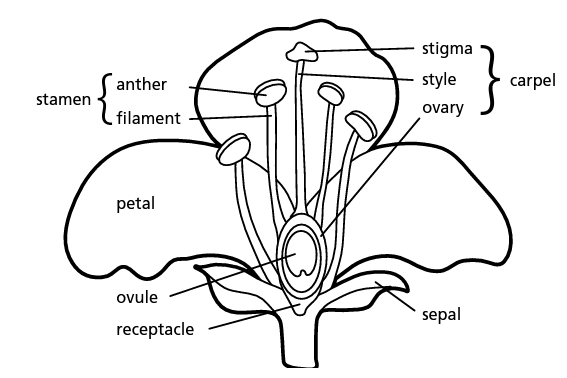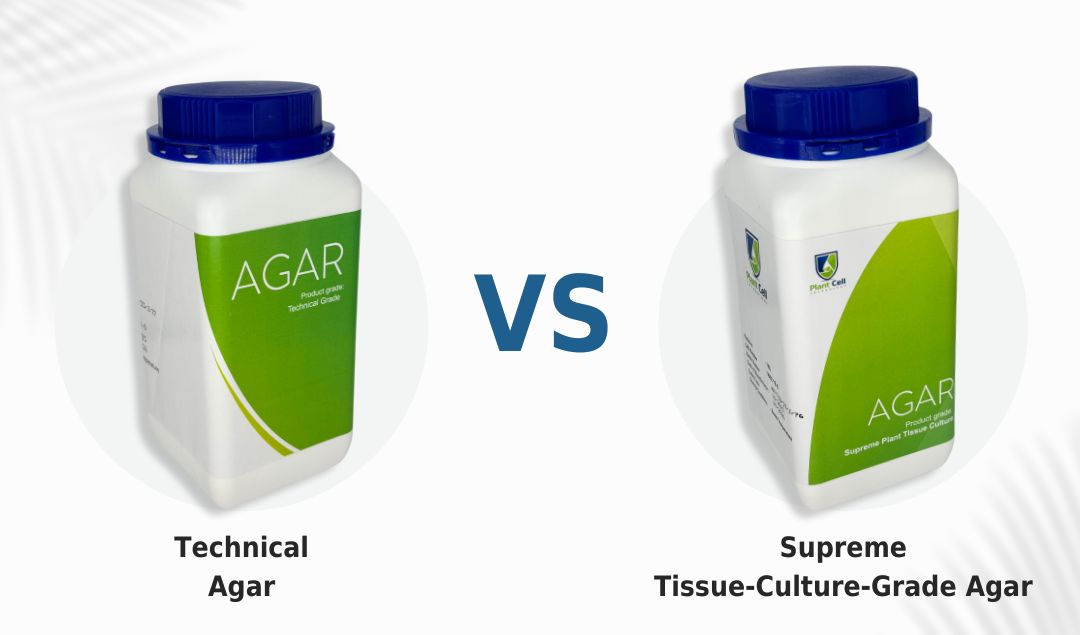
Pollen Culture: Definition, Procedure, and Applications
As a content and community manager, I leverage my expertise in plant biotechnology, passion for tissue culture, and writing skills to create compelling articles, simplifying intricate scientific concepts, and address your inquiries. As a dedicated science communicator, I strive to spark curiosity and foster a love for science in my audience.


Introduction
Tissue culture is such a fascinating technology to clone plants or produce genetically identical plants. The exciting part is that any part of the plant can be used in the process to regenerate a whole plant.
What you just need to take care of is sterile conditions and a proper environment to allow plants to grow and develop properly.
Based on the part of the plant used in the process, tissue culture is of different types: shoot tip culture, hairy root culture, meristem culture, embryo culture, pollen culture, and anther culture.
In this article, we will delve more into the pollen culture technique and learn about its application, advantages, and disadvantages.
What is Pollen Culture?
Pollen is a microspore produced by seed plants that appear in the form of dust. They are extensively used as an explant to produce haploid plants.

Figure: A labeled illustration of a flower.
During the process, flower buds are collected, surface sterilized, and anther lobes are dissected. Then, the anther lobes are squeezed using a scalpel in a small tube or container, containing nutrient media, to collect the microspore.
The microscope form callus into the nutrient media, which develops into haploid plantlets when grown through embryogenesis or organogenesis technique.
The ability of pollen grain to induce plant development was first realized in 1953 by W. Tulecke. He observed that mature pollen grains of Ginkgo biloba can be induced to proliferate in nutrient culture media in lab conditions to form haploid calli.
General Procedure of Pollen Culture

Here’s the general procedure for performing pollen cultures. However, the process might differ based on the plant species you’re working on:
- Collect anthers (at least 50) from flower buds in a small beaker containing 20ml of the liquid basal medium (MS or Nitsch medium).
- Press anthers against the side of the beaker to squeeze out pollens.
- The homogenized anthers are then filtered through a nylon sieve to remove the anther tissue debris.
- Centrifuge the pollen suspension at 500-800 rpm/min for five minutes. Discard the supernatant and keep the pellet containing pollens. Then suspend it in a liquid media and wash it twice by centrifugation. Repeat the process twice.
- Pipette off a 2.5ml pollen suspension and spread it on a Petri dish with a soft agar medium. You can also use a liquid medium to grow pollens.
- Incubate cultures at 27-30 degrees celsius under the low intensity of white cool light.
- After 30 days, you will observe young embryoids that you can use to regenerate plantlets.

Figure: An illustration of the anther and pollen culture for haploid plant production.
Applications

Here’re some applications of pollen culture:
- Production of haploid plants: It’s one of the major applications of pollen and anther culture. It’s mainly because conventional or traditional breeding methods are time-taking as they take many generations of inbreeding or backcrossing.
Why one of the extensive applications of pollen culture is haploid production?
It’s mainly because pollens are haploid, so whatever plants grown using them as explants turn out to be haploid. The technique has been used to obtain haploid cultures of barley, wheat, and rice. You can also obtain homozygous diploids by doubling the chromosome number of haploids.
- Transformation: When used in producing transgenic plant formation, it can be less time-consuming.
- The technique has applications in mutation studies and produces secondary metabolites.
- Crop improvement: The pollen culture technique has been employed to enhance the quality of vegetable and cereal crops such as asparagus, sweet pepper, watermelon, cabbage, broccoli, wheat, and others.
Advantages
- Simple
- Requires minimal time and enables the production of numerous haploids within a short period.
- Highly receptive, the majority of anthers subjected to cultivation exhibit a response.
- By relying on pollen culture, the possibility of chimerism and callus formation from the anther walls is eliminated.

Disadvantages
- The extraction of anthers without causing damage requires expertise and is regarded as a challenging task.
- This method hasn’t been found successful with cereal crops.
- Limited genetic variation: Since pollen culture produces haploid plants, there is limited genetic variation among the resulting plants. This can limit the ability to develop new and diverse plant varieties.
- Limited applicability: Pollen culture may not be applicable to all plant species (such as cereal crops), and success rates may vary between different species and cultivars.
Interested in Learning Tissue Culture Techniques For Your Plant Business? We Can Help!
Plant Cell Technology is a leading provider of tissue culture products and services. It offers tissue culturists like you all the products you need to perform your in vitro experiments, ranging from MS media, agar, gellan gum, and culture vessels, to hormones and our proprietary product plant preservative mixture (PPM).
Further, if you’re stuck at any stage of the tissue culture process, you can use our consultation services to have a video chat with our tissue culture expert. He will give you an instant potential solution to your problems to keep your lab experiments running!
And, if you are new to the area and interested in growing your plant business using this amazing technology or want to learn this propagation technique as a hobbyist, you can join our tissue culture master class. The classes are curated to turn you into a tissue culture pro. They are leas by tissue culture experts in the area who teach you how to efficiently use the technology for your use.
Blog Categories
View by Level
Popular Blogs

6 Plant Tissue Culture Books to Keep Learning
Introduction Most of us are fans of books when it comes to learning a topic in detail and in a...
Read More
New Technical Agar Vs Supreme Agar
Introduction What’s the secret element that supports and holds plants in vitro? Not sure? It’s the solidifying agent. Solidifying agents...
Read MoreSubscribe to Our Newsletter








Join the conversation
Your email address will not be published. Required fields are marked